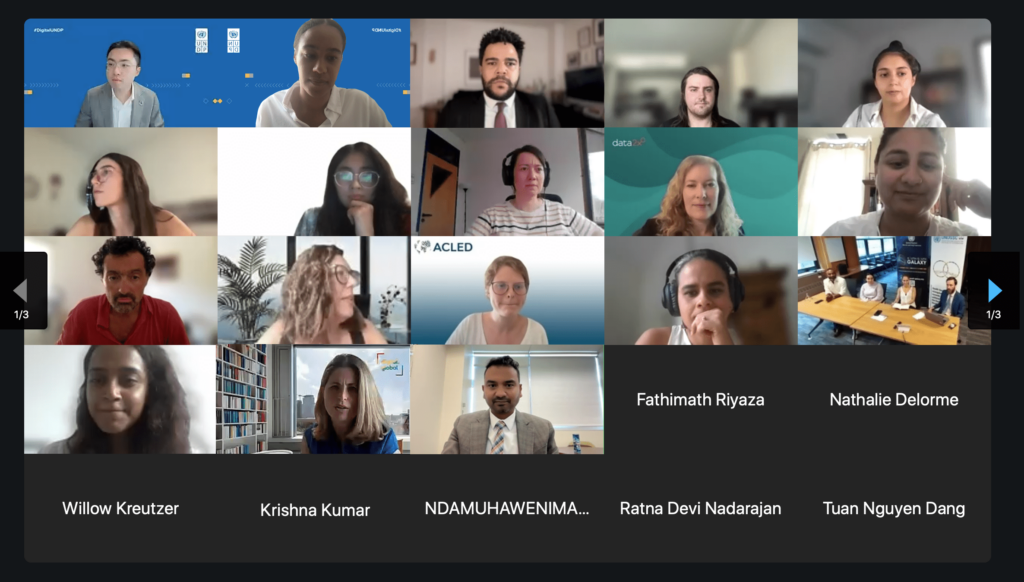On 10 July 2024, on the margins of the United Nations High-Level Political Forum (HLPF), the Data to Policy Network side event on “Democratizing Gender Data for Better Policymaking” brought together nearly 150 participants from all regions. Co-hosted by the United Nations Office for South-South Cooperation (UNOSSC), the United Nations Development Programme (UNDP), the Deutsche Gesellschaft für Internationale Zusammenarbeit (GIZ), and PARIS21, the event was a platform for robust dialogue and exchange.
The event began with welcome and opening remarks from Ms. Dima Al-Khatib, Director of UNOSSC, who highlighted the importance of gender dimensions in ensuring effective policymaking, and the role of South-South and triangular cooperation and initiatives such as the Data to Policy Network in supporting policymakers in accessing and using gender data towards Sustainable Development.
During her keynote address, Ms. Krista Jones Baptista, Executive Director of Data2x, set the stage for the panel discussion by highlighting the importance of democratizing gender data towards more effective policy interventions, highlighting the contributions of Data2x in supporting that process.

Moderated by Ms. Laura Harrison, Team Leader, Gender & Inclusive Data Ecosystems at PARIS21/OECD, the panel discussion featured interventions from Ms. Fatimath Riyaza, Head of Population and Social Statistics Division at the Maldives Bureau of Statistics; and Ms. Ronda Železný-Green, Founder and CEO, Datocracy The interactive panel discussion spotlighted three successful approaches to democratizing gender data: Connecting, Communicating, and Capacity Building.
- Connecting: The event emphasized breaking down silos between government officials, statisticians, journalists, academics, and civil society to ensure gender data reaches policymakers effectively.
- Communicating: Experts discussed the importance of presenting and packaging data in compelling ways, cutting through jargon, and using narratives that resonate, especially with the input from civil society, which understands local contexts best.
- Capacity Building: Discussions highlighted the need to enhance capacity development by teaching policymakers the fundamentals of gender data and the significance of intersectionality.

The event fostered a rich environment for dialogue among policymakers and other stakeholders, allowing for in-depth exchanges of experiences and best practices, further highlighting the global commitment to advancing gender-responsive and data-informed policies.

The event concluded with reflections from Ms. Karolin Erdmann, Head of Data and AI for Policymaking at GIZ, and Mr. Gayan Peiris, Head of Data and Technology at UNDP Chief Digital Office, who underscored the importance of ongoing collaboration and learning, and the role played by initiatives such as the Data to Policy Network in supporting the democratization of gender data and evidence-based policymaking.

The success of this event underscores the importance of collaborative spaces where policymakers can connect, learn, and overcome challenges in gender data utilization. The Data to Policy Network continues to support this mission, bringing together policymakers all regions to unlock the power of collective learning and action.
